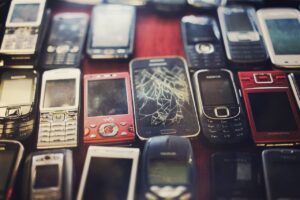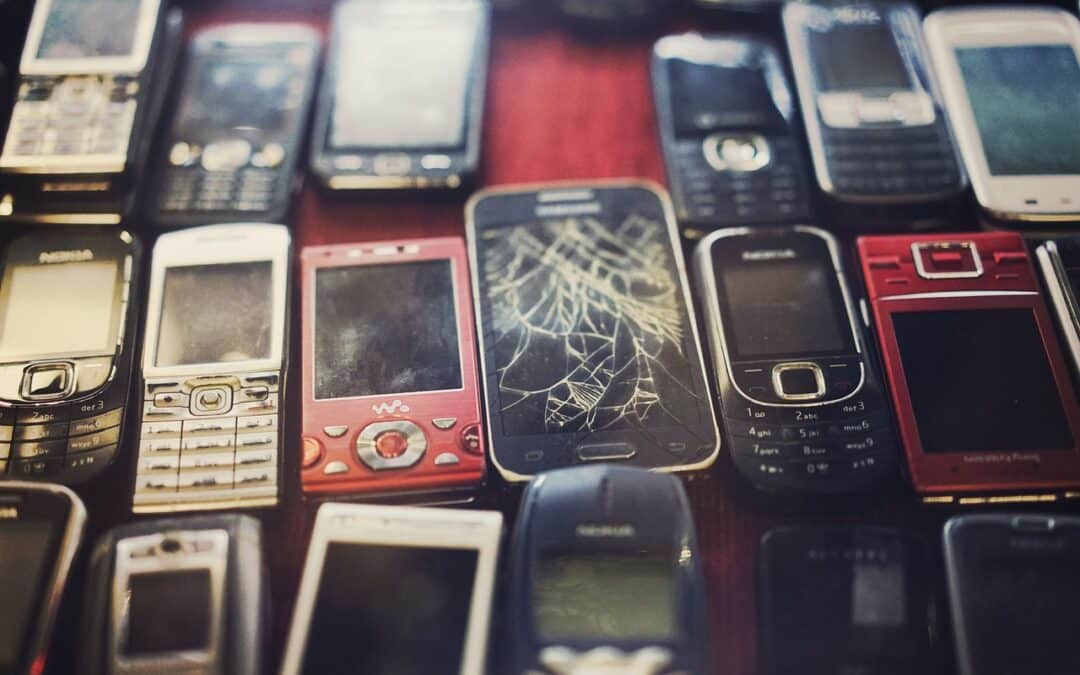 In our technology driven world, we have become dependent on electronic devices. But with ever changing upgrades and technology, what should be done with equipment that is replaced? Devices should not be disposed of in the normal trash as e-waste poses a significant environmental threat if not disposed of responsibly.
In our technology driven world, we have become dependent on electronic devices. But with ever changing upgrades and technology, what should be done with equipment that is replaced? Devices should not be disposed of in the normal trash as e-waste poses a significant environmental threat if not disposed of responsibly.
E-waste is a term that refers to electronic devices that are no longer useful or wanted. These include things like:
- Computers
- Laptops
- Smartphones
- Tablets
- Printers
- Cameras
- TVs
E-waste can contain hazardous materials such as lead, mercury, cadmium, and brominated flame retardants. These can harm the environment and human health if they are not disposed of properly.
E-waste comprises about 70% of toxic waste and people only recycle 12.5% of it.
What can you do to responsibly get rid of e-waste at your home or office? Here are some tips.
Understand What Makes Up E-Waste
E-waste includes old computers, smartphones, printers, and other electronic devices. It also comprises batteries, chargers, and even cables. Understanding what makes up e-waste is the first step towards responsible disposal. Most people simply are not aware of what e-waste includes. This is a big reason that most of it ends up in landfills. Which is not good for us or the environment.
Reduce Your E-Waste
Reduce the amount of e-waste you generate. This means buying only what you need. Also choosing durable and energy-efficient products as well as extending the lifespan of your devices by repairing them when possible. Before buying a new electronic device, ask yourself if it is necessary. Can more than one person share a company laptop, for example? In some cases, everyone in a family or office might not need a duplicate device.
Explore Recycling Programs
Many electronics retailers and manufacturers have recycling programs as do local municipalities. These businesses and local government collect old gadgets, ensuring they are recycled or disposed of properly. These programs are convenient and eco-friendly.
Use E-Waste Recycling Centers
E-waste recycling centers specialize in disposing of electronic devices safely. They dismantle gadgets, recycle valuable components, and dispose of hazardous materials responsibly. Locate a certified e-waste recycling center near you for proper disposal.
Consider Donating or Selling Functioning Devices
If your old devices are still functional, consider donating them. Many charities and schools accept functional electronics. Or you can sell them online through reputable platforms. Make sure you thoroughly clean data from old devices first. You do not want someone having access to your online banking app or all your family photos.
Dispose of Batteries Separately
Batteries, especially rechargeable ones, contain hazardous materials. Many retailers and recycling centers have dedicated bins for battery disposal. Always separate batteries from other e-waste for proper handling.
Try Manufacturer Take-Back Programs
Several electronic manufacturers offer take-back programs. When you buy a new device, inquire about their disposal programs. Some manufacturers take back old gadgets, ensuring responsible recycling or refurbishment.
Educate Your Office or Household
Awareness is key. Educate your office or household about the importance of responsible e-waste disposal. Encourage everyone to take part and follow proper disposal methods.
Repurpose or Upcycle
Get creative. You can often repurpose or upcycle old electronics. Turn an old computer monitor into a digital photo frame. Use smartphone parts for DIY projects. Upcycling reduces waste and adds a touch of innovation.
Encourage Manufacturer Responsibility
Support companies that take environmental responsibility seriously. Choose products from manufacturers committed to sustainable practices and responsible e-waste management.
It is important to both back up and remove all data from devices before you get rid of them. We can help with expert data migration from the old device to the new one as well as making sure all information is removed from the device being replaced.

